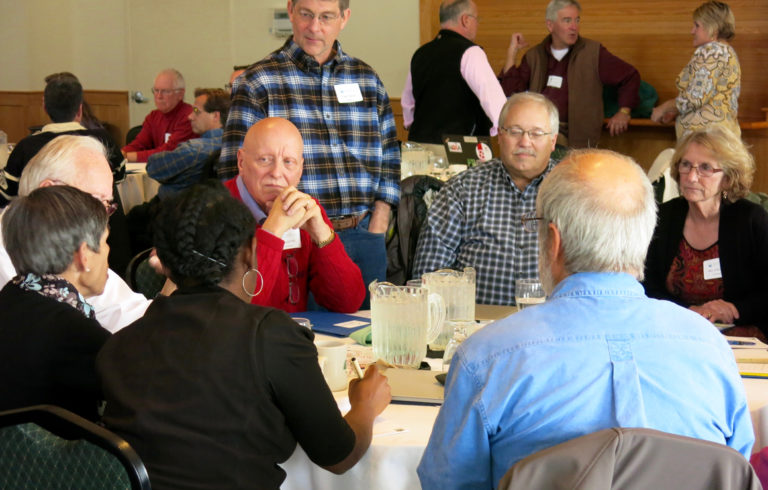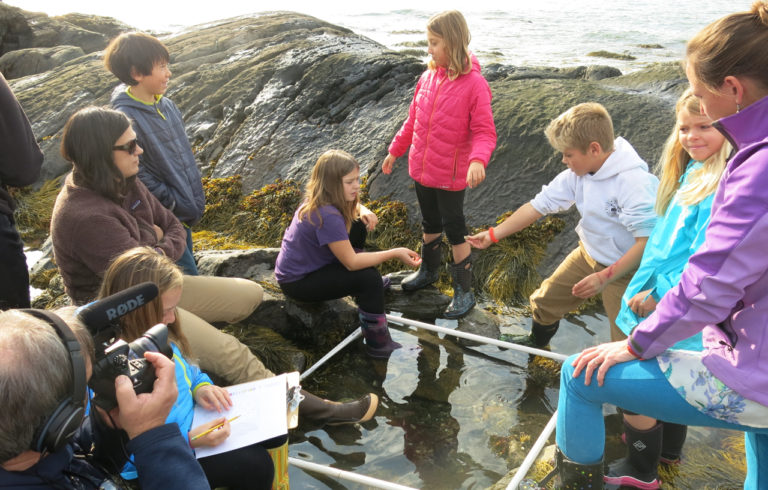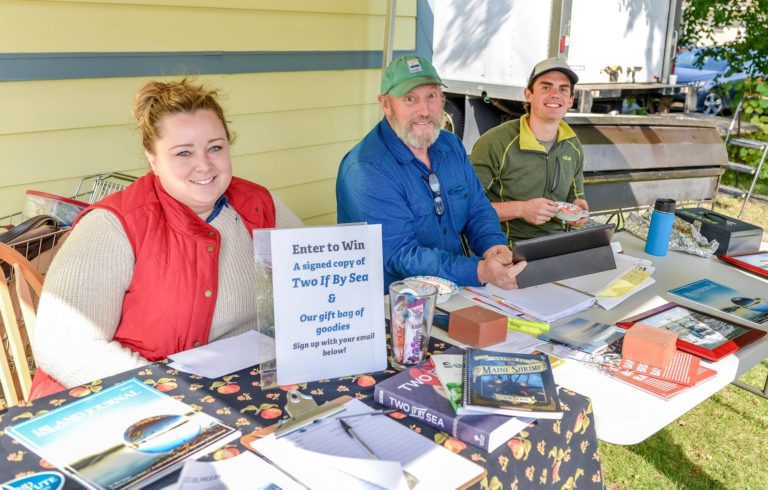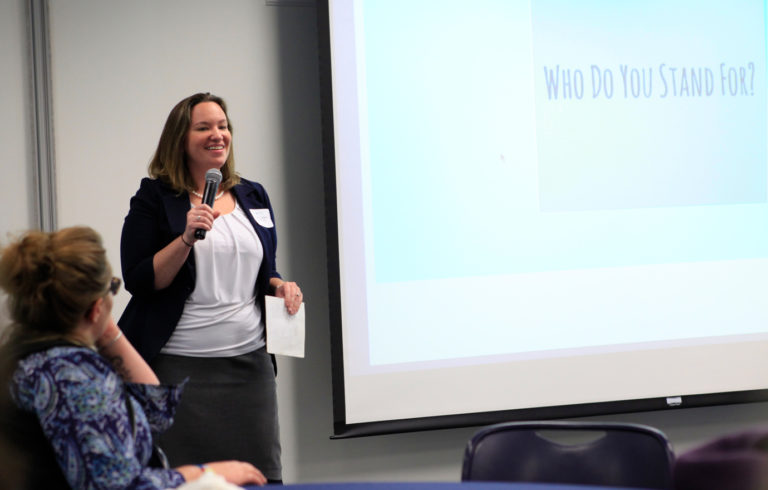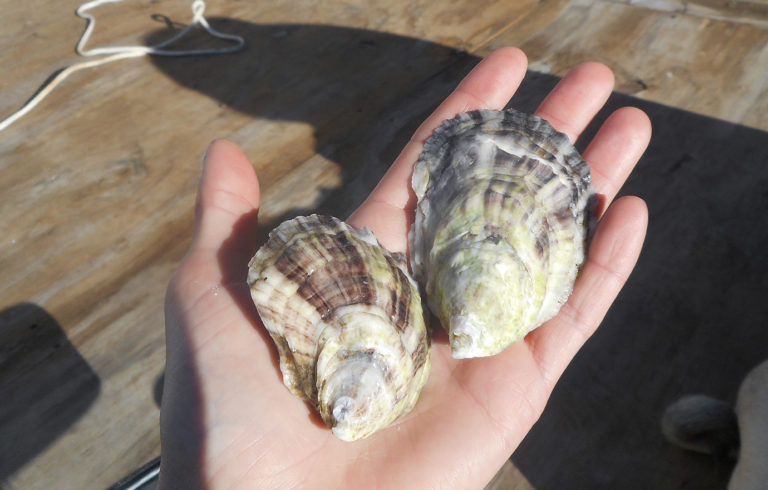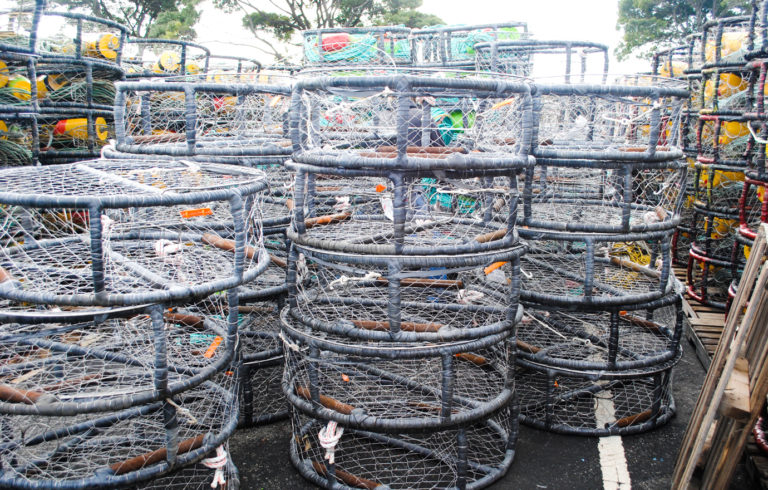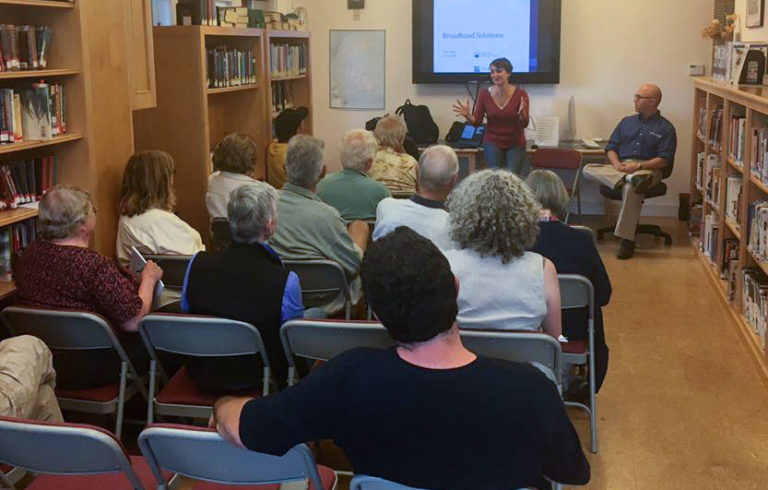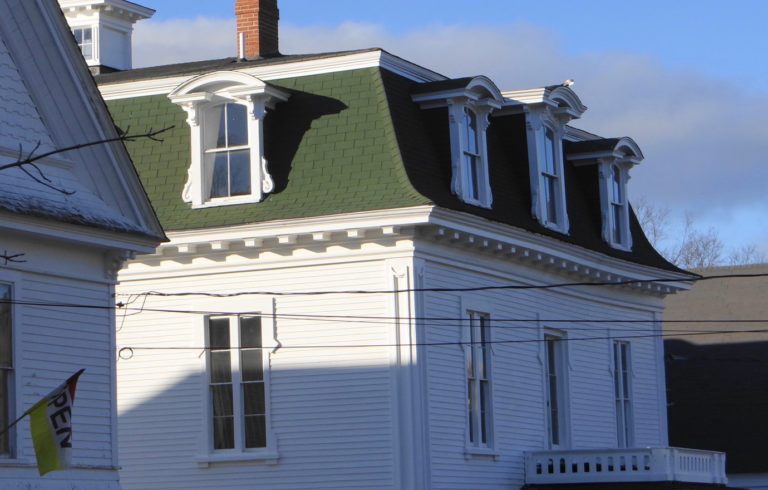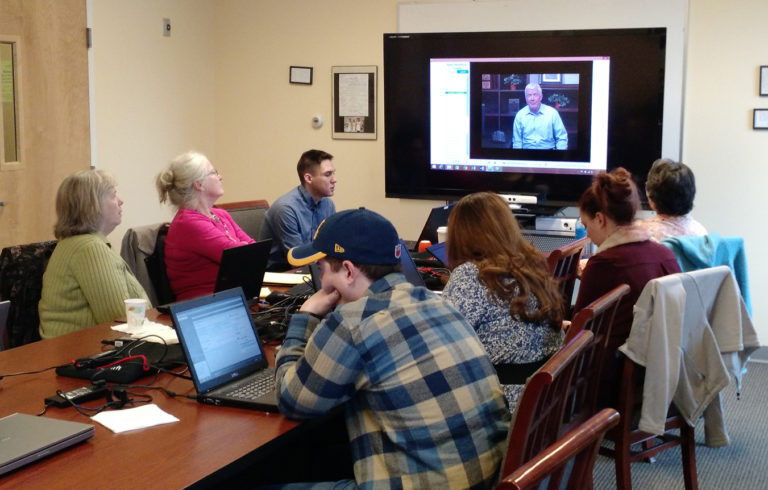November 15, 2016
Islanders are leading the way to better broadband
After a year and half, I've come to learn what islanders already knew: broadband is the high-speed, reliable internet that is essential for economic sustainability. I had the pleasure of hearing from Maine’s islands about their progress at the Broadband Summit.
November 14, 2016
Ocean planning in the classroom
I teamed up with Green Fire Productions, a nonprofit video production company, to film classroom footage of John Van Dis of Edna Drinkwater School and Marci Train of Long Island School for the newest Ocean Frontiers documentary.
October 20, 2016
Alaskan Salmon in Maine: (delicious) food for thought
People driving down Route 1 on Sunday smelled wild salmon from the northern reaches of the Pacific hitting the grill a stone’s throw from the Atlantic. Those smart enough to follow their noses were greeted by sustainable salmon from Alaska and seaweed salad from Maine.
October 20, 2016
Hands-on learning in schools large and small
What kind of school gets kids to build their own racecar? How about asking students to carry their trash around for a week? Or compare themselves to a favorite vegetable? Those are just a few of the student assignments I heard about at this year's Island Teachers Conference, and they all have a common result: Students are diving deeper into their surroundings, and learning more along the way.
October 20, 2016
Outer island stories brought to life by shadow puppets
Last winter and spring, Figures of Speech Theatre worked with outer islands schools to produce a film. And it's probably not like any film you've seen before.
October 19, 2016
Baby shellfish are growing fast as our first aquaculturists start their farms
Many of our aquaculture business development participants have already started their farms and we project that the economic impact of this work will have an $8.5 million effect on Maine’s coast over the next five years.
October 19, 2016
Maine’s recent shellfish closure has the same culprit as California’s 2015 crab crisis
In September of this year, eastern Maine was closed to clam and mussel harvesting. The cause? Not our familiar red tide, but a different biotoxin, domoic acid. It accumulates in filter-feeding shellfish during a bloom of specific algae species. The bloom in eastern Maine is now dissipating, but the clam and mussel fishery hasn’t fully reopened.
October 3, 2016
Commercial Currents: Boosting business with better internet
Island residents strive to provide better internet for businesses and communities
Are you frustrated when trying to run a customer’s credit card? Can’t provide WiFi? Are you prevented from working where you want to live because of poor internet service? Struggling to market your products to customers beyond your neighborhood?September 6, 2016
Entrepreneurs as Community Leaders
It is becoming clear to me that entrepreneurs have a special ability to tackle important community issues with an eye toward innovative solutions.
September 1, 2016
Commercial Currents: Finding efficiency with digital tools
Island and coastal business owners have often told us that they would like to make their businesses more efficient through the use of digital tools like QuickBooks and social media. As a result, we teamed up with Axiom Education and Training Center (AETC) to deliver digital workshops on islands, to support businesses on their own turf.

